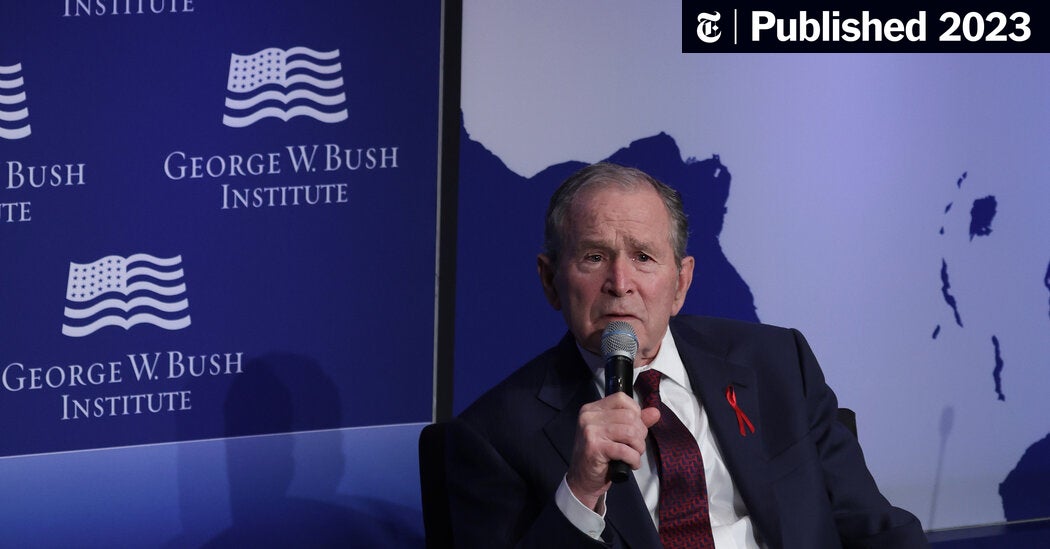PEPFAR, created by President George W. Bush in 2003 to combat the disease, faces an uncertain future now that its authorizing legislation has lapsed.
The institute founded by President George W. Bush issued an urgent call on Wednesday for Congress to renew the global AIDS program known as PEPFAR, a centerpiece of Mr. Bush’s foreign policy legacy that has become a victim of abortion politics on Capitol Hill.
PEPFAR — the President’s Emergency Plan for AIDS Relief — has saved an estimated 25 million lives since Mr. Bush founded it 20 years ago. The $6.9 billion program, which Congress has previously reauthorized every five years, has long had bipartisan support and is often cited as a powerful example of America’s moral leadership in the world.
But it faces an uncertain future. The legislation authorizing the program lapsed on Sept. 30 after some House Republicans claimed, without evidence, that the Biden administration was using it to promote abortion overseas. Those Republicans want to attach abortion-related restrictions to PEPFAR that would doom its reauthorization in the Democratic-controlled Senate.
The Bush Institute, which is nonpartisan, has thus far been reluctant to step into the debate.
But in a bipartisan letter signed by more than 30 retired ambassadors, foreign policy luminaries and organizations — including the Carter Center, founded by former President Jimmy Carter — the institute pleaded with Congress to reauthorize the program. It argued that in addition to saving lives, PEPFAR was countering the rising influence of Russia and China and burnishing America’s reputation as a global leader.
“PEPFAR is a model of United States leadership and a source of great national pride,” the letter said. “It is one of the most successful international development programs since World War II. Abandoning it abruptly now would send a bleak message, suggesting we are no longer able to set aside our politics for the betterment of democracies and the world.”
For now, at least, PEPFAR is continuing to operate. But advocates fear that, without the underlying authorization, the program will be subject to budget cuts or even elimination in the future. And they say the program is weaker without the bipartisan imprimatur of Congress.
